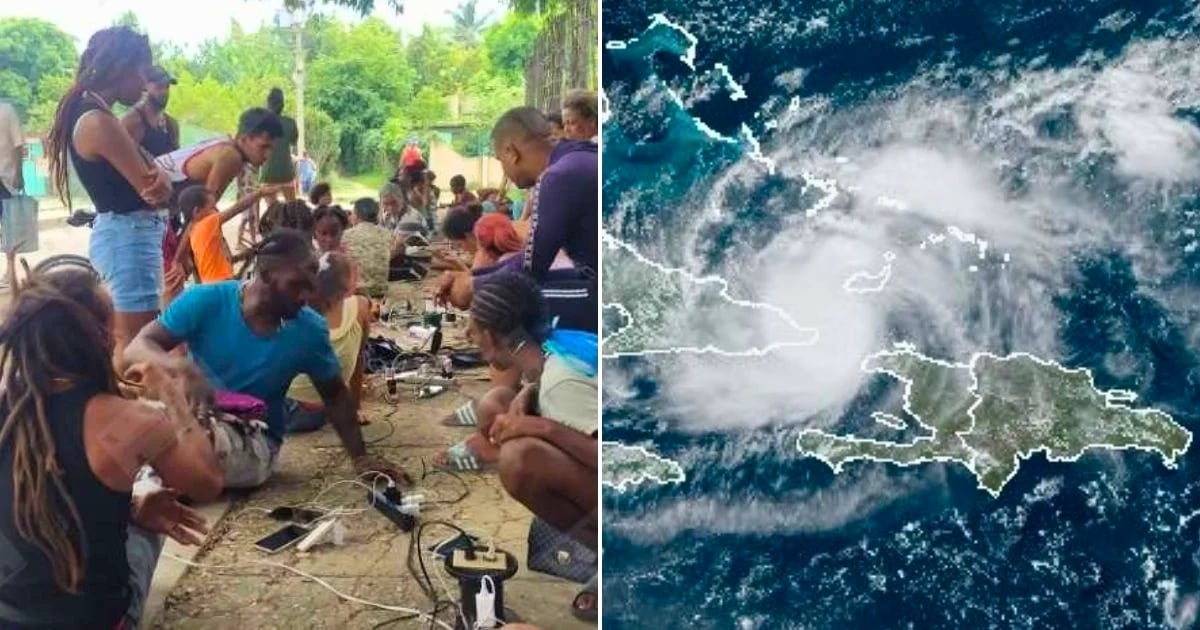In the closing days of October, Cuba finds itself in a dire situation, dealing with a nationwide power outage and the ravages of Hurricane Oscar in the eastern region. Since October 18, a massive blackout has plunged millions into darkness, compounded by the destructive force of a cyclone primarily affecting the provinces of Guantánamo and Holguín. Here, we provide a detailed account of the most significant events up to October 21.
Widespread Blackout: "Desperation and Protests"
The island-wide blackout began on October 18 when the National Electroenergetic System (SEN) completely shut down, leaving the entire island without power. The situation worsened with the outage of the Antonio Guiteras Thermoelectric Plant, Cuba's largest energy producer. This led to a wave of protests and pot-banging demonstrations in areas like Old Havana and Reparto Bahía, where citizens voiced their frustration over the power shortage.
Since then, Cubans have faced the harsh reality of extended periods without electricity, with some areas, such as Havana, experiencing outages exceeding 52 hours. One resident reported losing all refrigerated food. The blackout also impacted critical locations like the José Martí International Airport, creating chaos and uncertainty amid the ongoing energy crisis.
Hurricane Oscar's Impact: "Eastern Cuba Under Siege"
As the country grappled with power cuts, Hurricane Oscar approached eastern Cuba, making landfall on October 20 in Baracoa, Guantánamo, with sustained winds of 80 mph. This Category 1 hurricane brought heavy rain, strong winds, and storm surges that caused flooding in low-lying areas such as the Baracoa Malecon and other coastal regions.
In Maisí, the meteorological station recorded wind gusts up to 64 mph before the hurricane's arrival. The Cuban Institute of Meteorology issued several cyclone warnings, alerting residents about potential landslides and floods in vulnerable areas.
The hurricane hit amidst a severe energy crisis and logistical limitations, hindering the authorities' ability to conduct evacuations and preventive measures. The direct impact of the cyclone compounded the critical situation, resulting in significant damage to coastal areas.
Tourism Event Amidst Power Crisis
Despite the ongoing blackout and hurricane effects, the Gaviota hotel group, part of the military conglomerate GAESA, proceeded with the sixth edition of the Tourism Fair "Destinos Gaviota 2024" in Holguín. This event has been heavily criticized by the public, as it took place during the country's most severe energy crisis, with no expense spared in its organization. Gaviota prioritized showcasing new tourism developments, disregarding the island-wide power outage.
Communist Regime's Response Criticized
The response from Cuba's communist regime has been met with widespread criticism. As citizens endure an unprecedented blackout and the aftermath of a hurricane, the government has largely blamed the U.S. embargo, deflecting responsibility for the lack of investment and mismanagement of the electrical system. Despite the energy system's deterioration being a direct result of years of inefficient policies and crumbling infrastructure, authorities have chosen to point fingers at external factors without offering clear or immediate solutions.
The regime's inability to effectively manage the crisis has intensified public discontent, evident in protests, pot-banging, and social media outcries. The power outage is exacerbated by internet disconnection, creating an information blackout and complicating efforts to coordinate effective emergency responses. Meanwhile, authorities have prioritized restoring power to some residential circuits, but the process has been slow, fragmented, and chaotic.
Amidst these challenges, Cubans have openly expressed their dissatisfaction, demanding profound changes in the country's management. They face a grim reality characterized by food insecurity, transportation issues, and inefficient healthcare services, all worsened by recent disasters.
